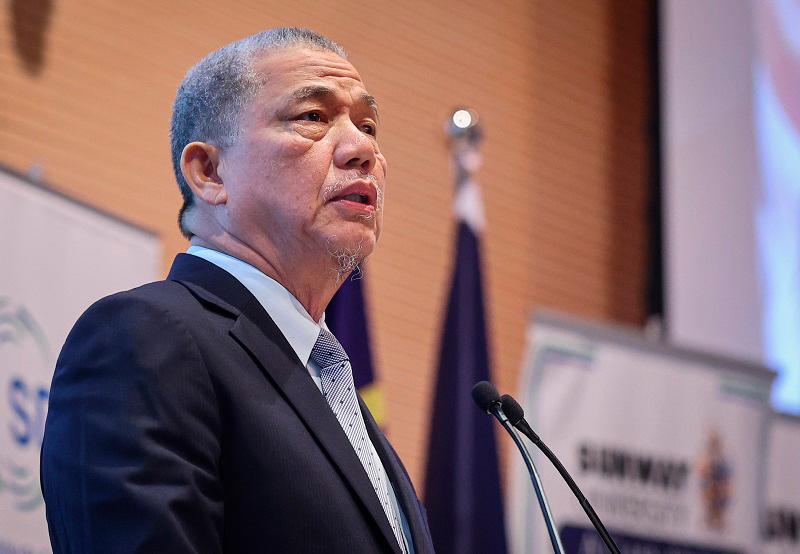PETALING JAYA: Malaysia will champion three transformative initiatives - energy decarbonisation, biodiversity protection and economic connectivity - to chart a bold course for the future of ASEAN in its journey towards realising the Sustainable Development Goals (SDGs).
Deputy Prime Minister Datuk Seri Fadillah Yusof said these efforts are vital not only for achieving its shared development goals but also for positioning ASEAN as a global leader in sustainability and resilience.
“These priorities reflect our shared aspirations for a prosperous, sustainable and interconnected ASEAN, but achieving these goals requires collaboration between governments, the private sector and civil society.
“It demands that we leverage our collective strength as a region, embracing innovation, resilience and inclusivity,” he said in his speech at the ASEAN Workshop on Sustainable Development (AWSD) 2025 held at Sunway University today.
Fadillah, who is also Energy Transition and Water Transformation Minister, represented Prime Minister Datuk Seri Anwar Ibrahim who is currently on a three-day working visit to the United Arab Emirates.
Also present were ASEAN secretary-general Dr Kao Kim Hourn, and chair of the United Nations (UN) Sustainable Development Solutions Network Malaysia and chairman of Sunway Group Tan Sri Dr Jeffrey Cheah.
Explaining further on the energy decarbonisation effort, Fadillah said the first priority is the transition toward a low-carbon, interconnected energy grid powered primarily by renewable energy sources.
He said that this transformation is not just an environmental imperative but a strategic necessity, and it is key to meeting the decarbonisation targets while ensuring energy security across the region.
“To achieve this, we must engage in strategic analysis and road mapping to assess current and projected energy demands, identify renewable resource capacities and evaluate existing transmission infrastructures to address gaps,” he said.
On the biodiversity protection initiative, Fadillah said it is hoped that under Malaysia’s chairmanship, the ASEAN Centre for Biodiversity can be strengthened to coordinate conservation efforts, harmonise national policies and establish a biodiversity protection treaty that commits member nations to sustainable land-use practices.
As for the economic connectivity effort, he said Malaysia will focus on the development of integrated and modern infrastructure to strengthen ASEAN’s economic integration and connectivity.
Some of the initiatives that should be actively explored include high-speed rail development to link major ASEAN cities, green ports and shipping and universal 5G access across urban and rural areas to bridge digital divides, he said.
“This will, no doubt, involve massive investments in infrastructure, and we need to explore innovative financing mechanisms, such as through public-private partnerships, that can attract both regional and international investments.
“By enhancing our infrastructure, we can reduce trade barriers, foster economic growth and position ASEAN as a global leader in connectivity and innovation,” he said.
Malaysia officially assumed the ASEAN chairmanship on Jan 1, 2025 marking its fifth time holding the position, having previously chaired in 1977, 1997, 2005 and 2015.









